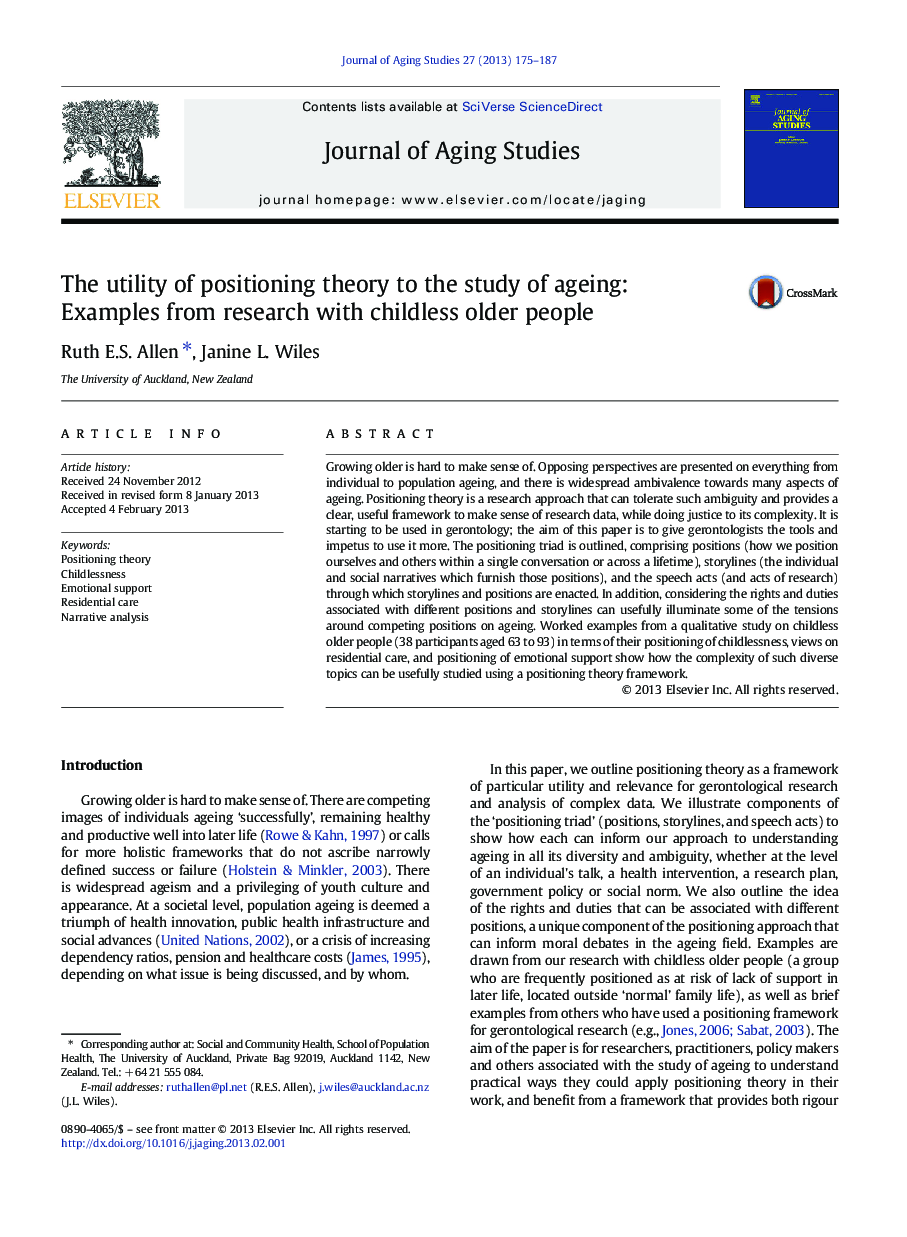| Article ID | Journal | Published Year | Pages | File Type |
|---|---|---|---|---|
| 1081861 | Journal of Aging Studies | 2013 | 13 Pages |
Growing older is hard to make sense of. Opposing perspectives are presented on everything from individual to population ageing, and there is widespread ambivalence towards many aspects of ageing. Positioning theory is a research approach that can tolerate such ambiguity and provides a clear, useful framework to make sense of research data, while doing justice to its complexity. It is starting to be used in gerontology; the aim of this paper is to give gerontologists the tools and impetus to use it more. The positioning triad is outlined, comprising positions (how we position ourselves and others within a single conversation or across a lifetime), storylines (the individual and social narratives which furnish those positions), and the speech acts (and acts of research) through which storylines and positions are enacted. In addition, considering the rights and duties associated with different positions and storylines can usefully illuminate some of the tensions around competing positions on ageing. Worked examples from a qualitative study on childless older people (38 participants aged 63 to 93) in terms of their positioning of childlessness, views on residential care, and positioning of emotional support show how the complexity of such diverse topics can be usefully studied using a positioning theory framework.
► Research on ageing often gives rise to complex, contradictory perspectives. ► Positioning theory is a framework well suited to analysing shifting, complex views. ► Examples from research on childless older people show diverse positions. ► Emotional support is positioned as not necessarily about relying on others. ► Analysing multiple storylines about residential care helps decision-making.
